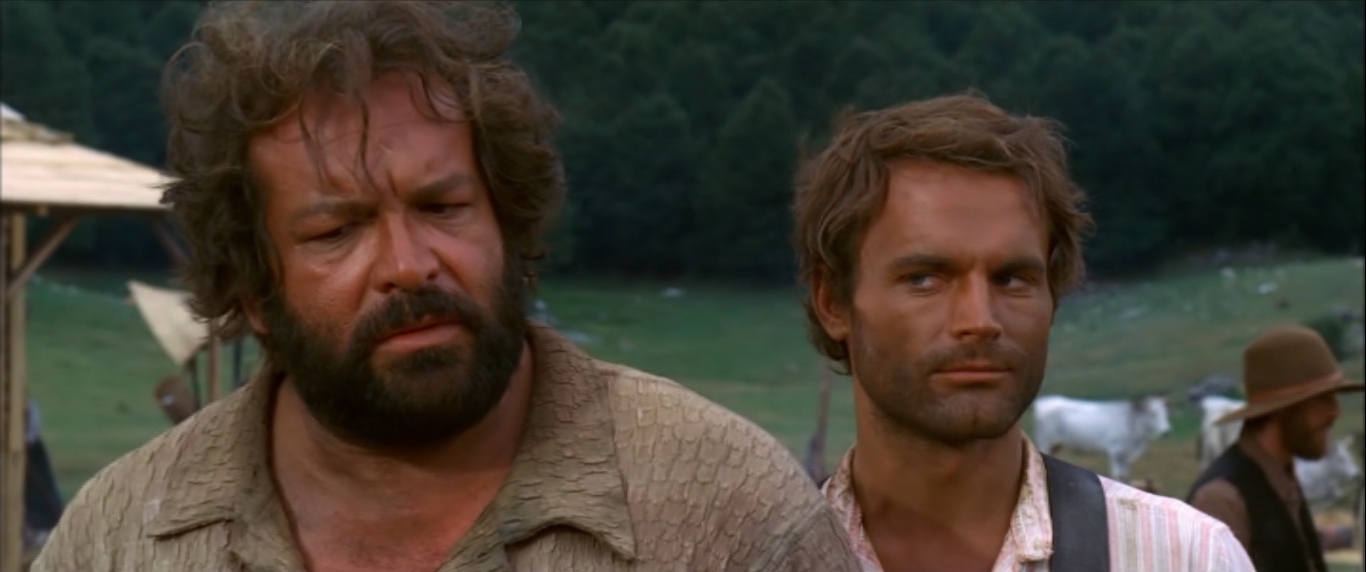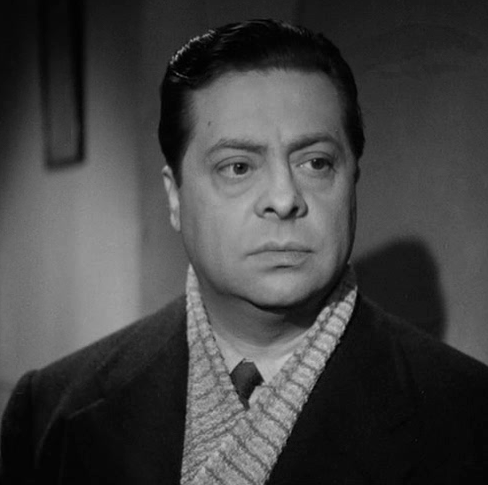|
Le Meraviglie Di Aladino
''The Wonders of Aladdin'' (Italian: ''Le meraviglie di Aladino'') is a 1961 Italian-French-American comedy fantasy film directed by Henry Levin (with second unit direction by Mario Bava—uncredited in U.S. prints but credited as sole director in Italy) and produced by Joseph E. Levine for Metro-Goldwyn-Mayer. The film stars Donald O'Connor as the title character. Cast * Donald O'Connor as Aladdin * Nöelle Adam as Djalma * Vittorio De Sica as Geni * Aldo Fabrizi as Sultan * Michèle Mercier as Princess Zaiha * Milton Reid as Omar * Terence Hill, Mario Girotti as Prince Moluk * Fausto Tozzi as Grand Vizier * Marco Tulli as Fakir Production O'Connor signed to make the film in October 1960. O'Connor said "The story of Aladdin has been done by everyone but this is its first time around as a comedy." ''The Wonders of Aladdin'' was produced in tandem with two Steve Reeves vehicles, ''Morgan, the Pirate'' and ''The Thief of Baghdad (1961 film), The Thief of Baghdad'', with producer ... [...More Info...] [...Related Items...] OR: [Wikipedia] [Google] [Baidu] |
Film Poster
A film poster is a poster used to promote and advertise a film primarily to persuade paying customers into a theater to see it. Studios often print several posters that vary in size and content for various domestic and international markets. They normally contain an image with text. Today's posters often feature printed likenesses of the main actors. Prior to the 1980s, illustrations instead of photos were far more common. The text on film posters usually contains the film title in large lettering and often the names of the main actors. It may also include a tagline, the name of the director, names of characters, the release date, and other pertinent details to inform prospective viewers about the film. Film posters are often displayed inside and on the outside of movie theaters, and elsewhere on the street or in shops. The same images appear in the film exhibitor's pressbook and may also be used on websites, DVD (and historically VHS) packaging, flyers, advertisements in newspap ... [...More Info...] [...Related Items...] OR: [Wikipedia] [Google] [Baidu] |
Maurizio Lucidi
Maurizio Lucidi (1932–2005) was an Italian director, screenwriter and editor, sometimes credited as Mark Lender. Born in Florence, Lucidi started his career as film editor in the early 1960s. In 1964 he was assistant director for Pier Paolo Pasolini on '' The Gospel According to St. Matthew''. He made his directorial debut in 1966 with '' Hercules the Avenger''; later he directed a number of genre films, especially Spaghetti Westerns. Selected filmography * '' The Changing of the Guard'' (1962) *''My Name Is Pecos'' (1966) *''Pecos Cleans Up'' (1967) *''Halleluja for Django'' (1967) *'' La battaglia del Sinai'' (1969) *'' Probabilità zero'' (1968) *''It Can Be Done Amigo'' (1971) *''The Designated Victim'' (1971) *'' Stateline Motel '' (1973) *''Due cuori, una cappella'' (1975) *'' Street People'' (1975) *''Il marito in collegio ''Il marito in collegio'' is a 1977 Italian comedy film directed by Maurizio Lucidi. It is based on the novel with the same name by Giovanni Gua ... [...More Info...] [...Related Items...] OR: [Wikipedia] [Google] [Baidu] |
Terence Hill
Terence Hill (born Mario Girotti; 29 March 1939) is an Italian actor, film director, screenwriter and producer. He began his career as a child actor and gained international fame for starring roles in action and comedy films, many with longtime film partner and friend Bud Spencer. During the height of his popularity Hill was among Italy's highest-paid actors. His most widely seen films include comic and standard Spaghetti Westerns, some based on popular novels by German author Karl May about the Wild West. Of these, the most famous are ''Lo chiamavano Trinità'' (''They Call Me Trinity'', 1970); …''continuavano a chiamarlo Trinità'' (''Trinity Is Still My Name'', 1971), the highest grossing Italian film to date; and ''Il mio nome è Nessuno'' (''My Name Is Nobody'', 1973), co-starring Henry Fonda. Hill, whose stage name was the product of a publicity stunt by film producers, also went on to a successful television career in Italy, playing the title character in the long-run ... [...More Info...] [...Related Items...] OR: [Wikipedia] [Google] [Baidu] |
Milton Reid
Milton may refer to: Names * Milton (surname), a surname (and list of people with that surname) ** John Milton (1608–1674), English poet * Milton (given name) ** Milton Friedman (1912–2006), Nobel Prize, Nobel laureate in Economics, author of ''Free to Choose'' Places Australia * Milton, New South Wales * Milton, Queensland, a suburb of Brisbane ** Milton Courts, a tennis centre ** Milton House, Milton, a heritage-listed house ** Milton railway station, Brisbane ** Milton Reach, a reach of the Brisbane River ** Milton Road, an arterial road in Brisbane Canada * Milton, Newfoundland and Labrador * Milton, Nova Scotia in the Region of Queens Municipality * Milton, Ontario ** Milton line, a commuter train line ** Milton GO Station * Milton (electoral district), Ontario ** Milton (provincial electoral district), Ontario * Beaverton, Ontario a community in Durham Region and renamed as Beaverton in 1835 * Rural Municipality of Milton No. 292, Saskatchewan New Zealand * ... [...More Info...] [...Related Items...] OR: [Wikipedia] [Google] [Baidu] |
Aldo Fabrizi
Aldo Fabrizi (; born Aldo Fabbrizi; 1 November 1905 – 2 April 1990) was an Italian actor, director, screenwriter and comedian, best known for the role of the heroic priest in Roberto Rossellini's ''Rome, Open City'' and as partner of Totò in a number of successful comedies. Life and career Born in Rome into a humble family, Fabrizi debuted on stage in a suburban theater in 1931. He soon got local success thanks to his comical sketches and '' macchiette'' (i.e. comical monologues caricaturing stock characters), and became a star of the Roman revue and ''avanspettacolo''. He made his film debut during the war, in 1942, and in a short time established himself as one of the most talented actors of the time, spacing from comedy to drama. After a number of successful comedies, in 1945 he played the iconic Don Pietro in the neo-realist drama ''Rome, Open City'', and following the critical and commercial success of the film he had a number of leading roles in other neo-realist films. ... [...More Info...] [...Related Items...] OR: [Wikipedia] [Google] [Baidu] |
Fantasy Film
Fantasy films are films that belong to the fantasy genre with fantastic themes, usually magic, supernatural events, mythology, folklore, or exotic fantasy worlds. The genre is considered a form of speculative fiction alongside science fiction films and horror films, although the genres do overlap. Fantasy films often have an element of magic, myth, wonder, escapism, and the extraordinary. Prevalent elements include fairies, angels, mermaids, witches, monsters, wizards, unicorns, dragons, talking animals, ogres, elves, trolls, white magic, gnomes, vampires, werewolves, ghosts, demons, dwarves, giants, goblins, anthropomorphic or magical objects, familiars, curses and other enchantments, worlds involving magic, and the Middle Ages. Subgenres Several sub-categories of fantasy films can be identified, although the delineations between these subgenres, much as in fantasy literature, are somewhat fluid. The most common fantasy subgenres depicted in movies are High Fantasy a ... [...More Info...] [...Related Items...] OR: [Wikipedia] [Google] [Baidu] |
Comedy Film
A comedy film is a category of film which emphasizes humor. These films are designed to make the audience laugh through amusement. Films in this style traditionally have a happy ending (black comedy being an exception). Comedy is one of the oldest genres in film and it is derived from the classical comedy in theatre. Some of the earliest silent films were comedies, as slapstick comedy often relies on visual depictions, without requiring sound. When sound films became more prevalent during the 1930s, comedy films took another swing, as laughter could result from burlesque situations but also dialogue. Comedy, compared with other film genres, puts much more focus on individual stars, with many former stand-up comics transitioning to the film industry due to their popularity. In '' The Screenwriters Taxonomy'' (2017), Eric R. Williams contends that film genres are fundamentally based upon a film's atmosphere, character, and story. Therefore the labels "drama" and "comedy" are t ... [...More Info...] [...Related Items...] OR: [Wikipedia] [Google] [Baidu] |
Italian Language
Italian (''italiano'' or ) is a Romance language of the Indo-European language family that evolved from the Vulgar Latin of the Roman Empire. Together with Sardinian, Italian is the least divergent language from Latin. Spoken by about 85 million people (2022), Italian is an official language in Italy, Switzerland (Ticino and the Grisons), San Marino, and Vatican City. It has an official minority status in western Istria (Croatia and Slovenia). Italian is also spoken by large immigrant and expatriate communities in the Americas and Australia.Ethnologue report for language code:ita (Italy) – Gordon, Raymond G., Jr. (ed.), 2005. Ethnologue: Languages of the World, Fifteenth edition. Dallas, Tex.: SIL International. Online version Itali ... [...More Info...] [...Related Items...] OR: [Wikipedia] [Google] [Baidu] |
Italian Lira
The lira (; plural lire) was the currency of Italy between 1861 and 2002. It was first introduced by the Napoleonic Kingdom of Italy in 1807 at par with the French franc, and was subsequently adopted by the different states that would eventually form the Kingdom of Italy in 1861. It was subdivided into 100 ''centesimi'' (singular: ''centesimo''), which means "hundredths" or "cents". The lira was also the currency of the Albanian Kingdom from 1941 to 1943. The term originates from ''libra'', the largest unit of the Carolingian monetary system used in Western Europe and elsewhere from the 8th to the 20th century. The Carolingian system is the origin of the French ''livre tournois'' (predecessor of the franc), the Italian lira, and the pound unit of sterling and related currencies. In 1999 the euro became Italy's unit of account and the lira became a national subunit of the euro at a rate of €1 = Lit. 1,936.27, before being replaced as cash in 2002. History Etymology ... [...More Info...] [...Related Items...] OR: [Wikipedia] [Google] [Baidu] |
Metro-Goldwyn-Mayer
Metro-Goldwyn-Mayer Studios Inc., also known as Metro-Goldwyn-Mayer Pictures and abbreviated as MGM, is an American film, television production, distribution and media company owned by amazon (company), Amazon through MGM Holdings, founded on April 17, 1924 and based in Beverly Hills, California. MGM was formed by Marcus Loew by combining Metro Pictures, Goldwyn Pictures, and Louis B. Mayer Productions, Louis B. Mayer Pictures into one company. It hired a number of well known actors as contract players—its slogan was "more stars than there are in heaven"—and soon became Hollywood's most prestigious film studio, producing popular musical films and winning many Academy Awards. MGM also owned film studios, movie lots, movie theaters and technical production facilities. Its most prosperous era, from 1926 to 1959, was bracketed by two productions of ''Ben-Hur (1959 film), Ben Hur''. After that, it divested itself of the Loews movie theater chain, and, in the 1960s, diversified ... [...More Info...] [...Related Items...] OR: [Wikipedia] [Google] [Baidu] |
Lux Film
Lux Film was an Italian film distribution (and later production) company founded by Riccardo Gualino in 1934. Gualino was an anti-fascist businessman who had clashed with the regime of Mussolini in 1931 and had been forced into internal exile on the island of Lipari.Gian Piero Brunetta, Jeremy Parzen ''The History of Italian Cinema: a Guide to Italian Film From its Origins to the Twenty-First Century'', 2009, Princeton & Woodstock: Princeton University Press, p. 71, 117 Founded in 1934, the Turin-based company specialised in distributing non-Italian films during its first few years. Relocating in Rome in 1940, Lux began making its own films around this time, with the aim of its output being "low risk and low budget by packaging high-quality art films with cultural content". Unlike the studio system current in Hollywood at the time, the company did not have its own studios, but financed, distributed, and exhibited projects which others brought to it with 'fixed-price contracts' wher ... [...More Info...] [...Related Items...] OR: [Wikipedia] [Google] [Baidu] |
_poster.jpg)


